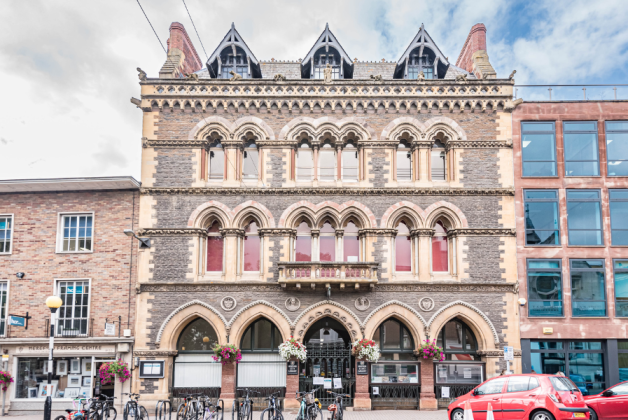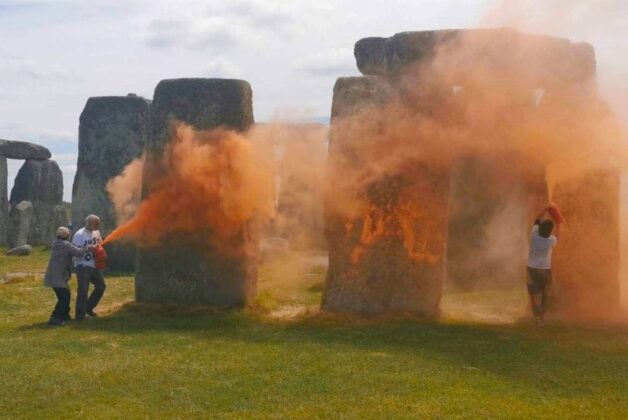Image: Just Stop Oil protest at the National Gallery (Photo: @JustStop_Oil)
The campaign group, alongside Youth Demand, have asked the National Museum Directors’ Council (NMDC) to meet at the National Gallery following the latest protest.
Just Stop Oil, one of the protest groups whose members have taken part in protests within the country’s museums, galleries, and heritage attractions has published an open letter inviting more dialogue with museum leaders.
The group, alongside political action group Youth Demand, have penned an open letter responding to a call for an end to demonstrations which have seen paintings and statues on display covered in paint and food.
Last week, following another demonstration in the National Gallery by Youth Demand, the National Museum Directors’ Council (NMDC) published an open letter calling for an end to protests.
In response, the two groups wrote: “Thank you for your open letter regarding the public interventions in gallery spaces these past few years, and for recognising that the world is in a very dark place.
“These are the actions of a public who are scared, angry, but unwilling to give up. People un afraid to use the cultural power of their national institutions when those institutions fail to do so. We have some ideas on how you can mitigate this. Let’s meet next week, in a public location at the National Gallery. We have action takers who have risked liberty to call for an end to oil and gas that would love to speak with Dr. Gabriele Finaldi. We’ll leave the soup at home.”
The letter claims the headline-grabbing actions of the groups have caused “small amounts of damage and disruption”, “in order to bring to attention the enormous damage and destruction that our government is supporting”.
The letter claims that “national treasures” “are in danger from the deadly storms, fires, and social upheaval that threaten museums in Florida and Athens.”
“People disrupt museum and gallery spaces to break the illusion that everything is fine. We need institutions to confront their responsibilities at this time – head on,” the groups wrote.
“There is a rich history of protest in public gallery spaces. We are proud to be part of that heritage – from the Suffragettes who slashed pictures in the National Gallery to anti-Sackler protests at the Guggenheim Museum in New York. Will you use your immense power to safeguard your collections and the public who enjoy them?
“Let’s work together. We look forward to hearing from you.”
The NMDC has been approached for comment.



